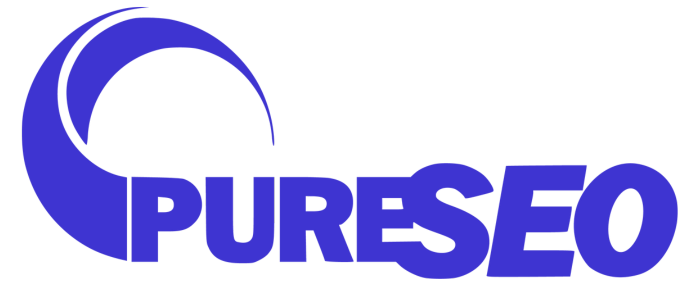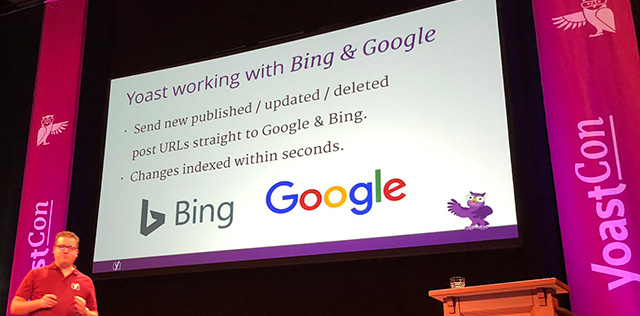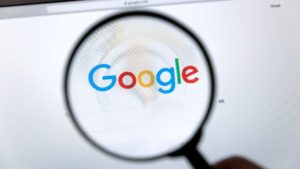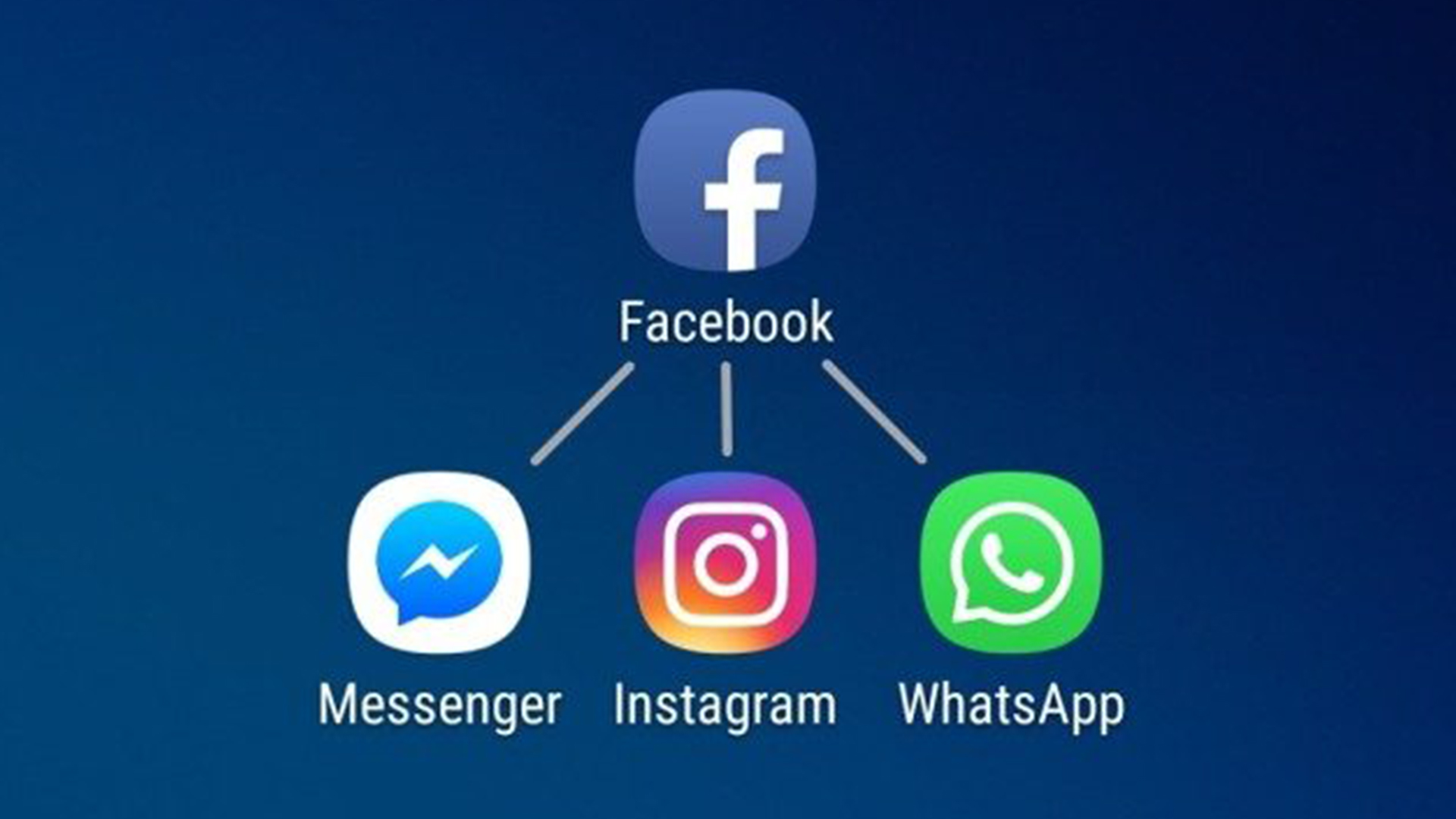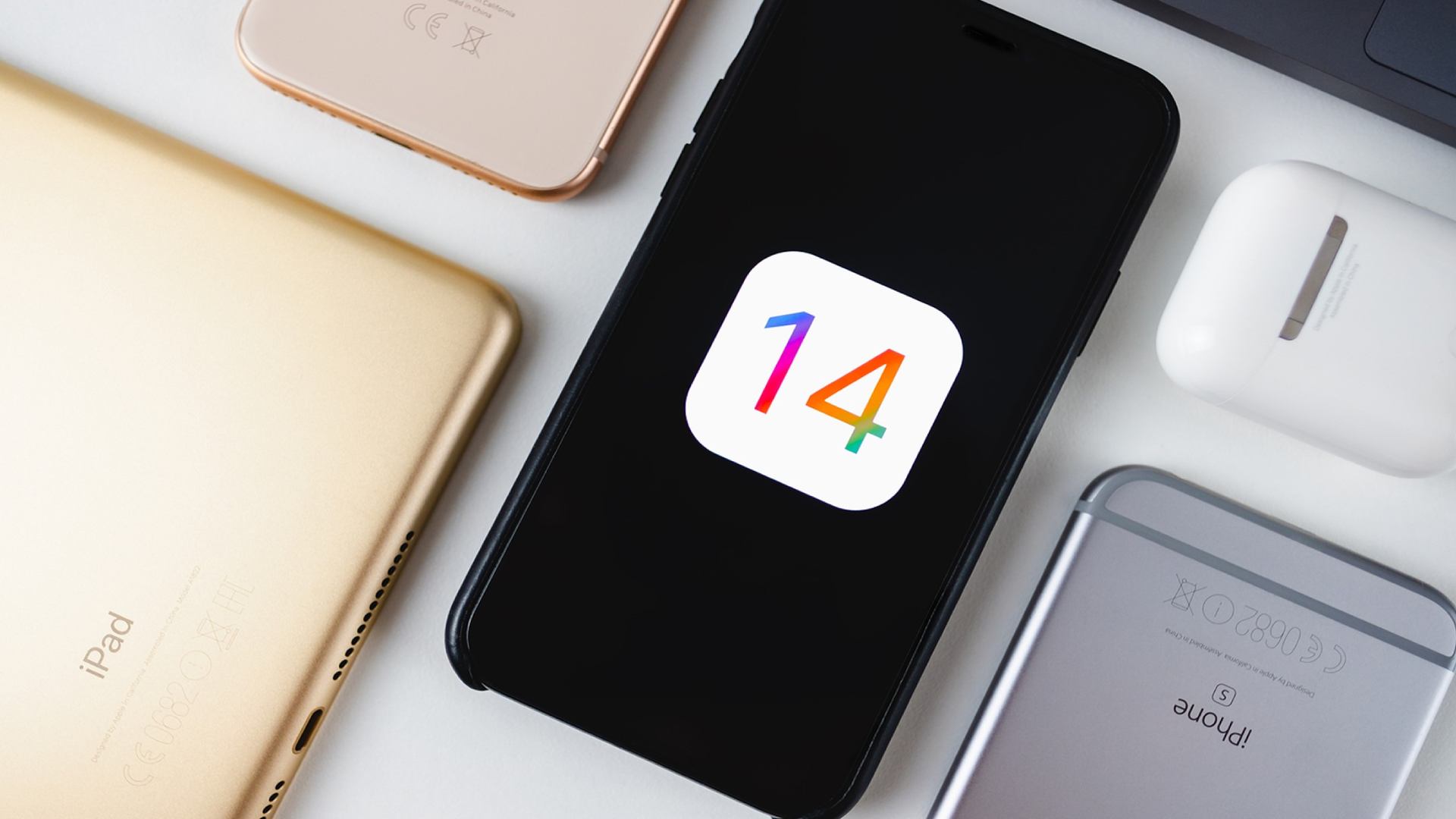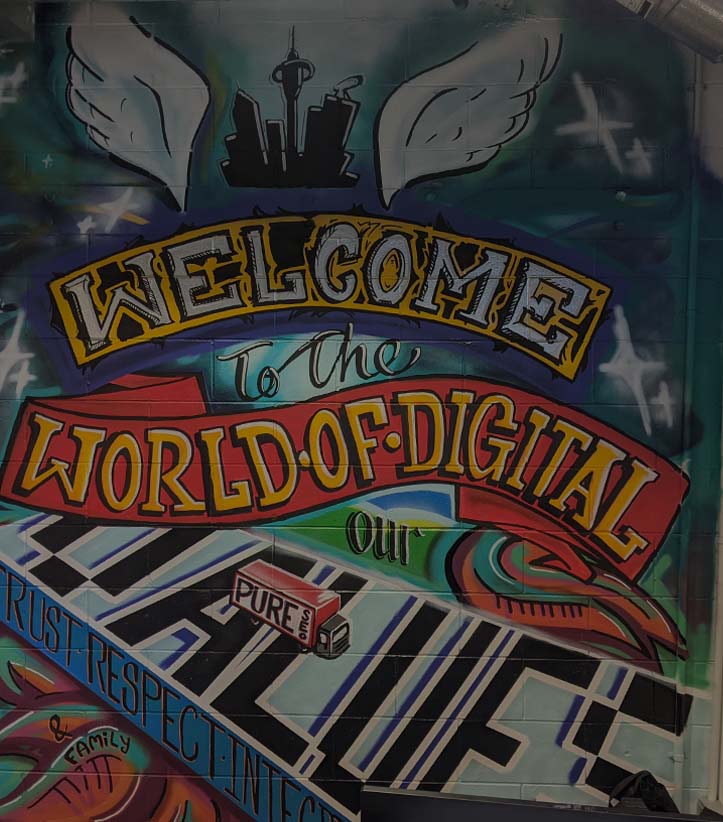
The dust is still settling from last week’s YoastCon – an interactive conference held in the Netherlands by SEO industry leader Yoast, known for their widely used WordPress plug-in.
The Big SEO Announcement: Real-time Indexing with Google and Bing
Joost de Valk, Founder and CPO of Yoast, announced at the convention that the Yoast SEO WordPress Plug-in will supply live indexing for both Google and Bing as of March.
Many commentators have been confused by this statement, unsure how exactly this integration will pan out. With Bing it seems straightforward; Yoast is likely working with Bing’s new submit URL API.
As for Google, experts are still unsure. John Mueller from Google implied that Yoast is not the only platform capable of this, but there has been no further official press from the search engine giant on the matter.
The Yoast blog explains:
“For Google the details on this are not entirely determined yet, but a Google Search Console account will probably be required.”
This means it’s unlikely to be via the Google Indexing API, as it tightly controls what content is allowed. Industry experts are waiting to see if Google will indeed end up making a statement, or whether we will just have to wait and see how the integration pans out.
Allegations of Harassment
These exciting official YoastCon announcements came after a debate was sparked on Twitter preceding the show – the #yoastcon hashtag was flooded with objectionable videos and screenshots of Joost de Valk behaving in a manner he went on to say he was “honestly ashamed of.” Joost de Valk was directly accused of sexually harassing women online based on decade-old tweets and videos, overshadowing the event with controversy before it even began.
The ensuing controversy was difficult to straighten out. Much of the incriminating evidence was deleted in response, or had been deleted previously, forcing those who were campaigning against Yoast to use other tools like The Wayback Machine and Archive.org in order to dig up screenshots.
The conflict became even more convoluted after one of the women who was allegedly the victim of Joost’s harassment came forward to excuse it as “friends being stupid,” and pointed out that much of the material was being taken out of context.
Throughout the ordeal, Joost seemed genuinely remorseful and has since then publicly apologised and made a number of statements to the effect that he had been a different person a decade ago, and had grown up a lot since then. Many of Joost’s apologies were largely read by angered members of the SEO community as a cop-out, and more focused on saving face than making amends with other women that could have also been targets of abuse.
Overall, the allegations were quickly compounded by the addition of complaints that were directed at the SEO industry as a whole – the general tendency for using booth babes and playmates at conferences came under fire, allegations of physical violence within the industry were made, and criticisms of other digital industry workplaces started to surface,
like this one, for example.
Layers of Controversy at YoastCon
Marieke van de Rakt – the current CEO of Yoast – then came out to express suspicions that the initial complaints were in retaliation to her public support for projects intended to empower women working at Yoast.
“I feel like it started after I was announced CEO and later on talked about a project to empower women working at Yoast. I got some really upsetting tweets. After that it started focusing on #yoastcon. It seems like they want to show the hypocrisy in our statements about women. I never spoke at SEO events before, though I have been to SEOktoberfest. It felt totally welcoming back then. That being said, the pictures and movies aren’t something I particularly enjoy watching. I do think they’re bad, but also a bit out of context. The environment at Yoast is nothing like that. And although my husband likes to party (as do I), I feel he’s always been a strong believer in equal rights and opportunities.”
David Cohen – one of those involved in making the allegations – was approached about this, and defended his own position, saying:
“As far as the harassment and abuse in the SEO industry, particularly at the SEO conferences, I’ve known about this since 2011 after seeing it firsthand while working at a large SEO agency in Philly, Seer Interactive”.
He went on to say that his own criticisms of harassment in the field were not targeted, as he has been openly critical of misogyny within the community since 2014.
Cohen and others purport that industry leaders have been actively covering up sexual harassment in SEO, and that they have further evidence that cannot be made public in order to avoid outing the victims.
What does it all mean for the SEO Industry?
It means that harassment of women is a very real problem in our industry, no matter which ‘side’ you take. Think about it – either Cohen & co. are correct in their allegations that industry leaders have been historically and systematically abusive, or Marieke van de Rakt’s analysis is correct, and a targeted harassment campaign was carried out against a female figure in the industry under the guise of whistle-blowing. It’s even possible that both are correct.
And both options prove the point that things need to change. 2009 may have been a different time, but here and now in 2019 we need to spend more time and energy admitting that our industry – along with every other industry – has categorically failed women. We need to start making self-reflective changes on a personal level just as much as we need to make the sorts of changes that Marieke van de Rakt and David Cohen are both championing.
Keep up to date with the latest in SEO.
Subscribe to our Pure SEO newsletter to get all of the latest SEO news delivered directly to your inbox every week. Or, if you’re looking to optimise your website, talk to the experts today!
